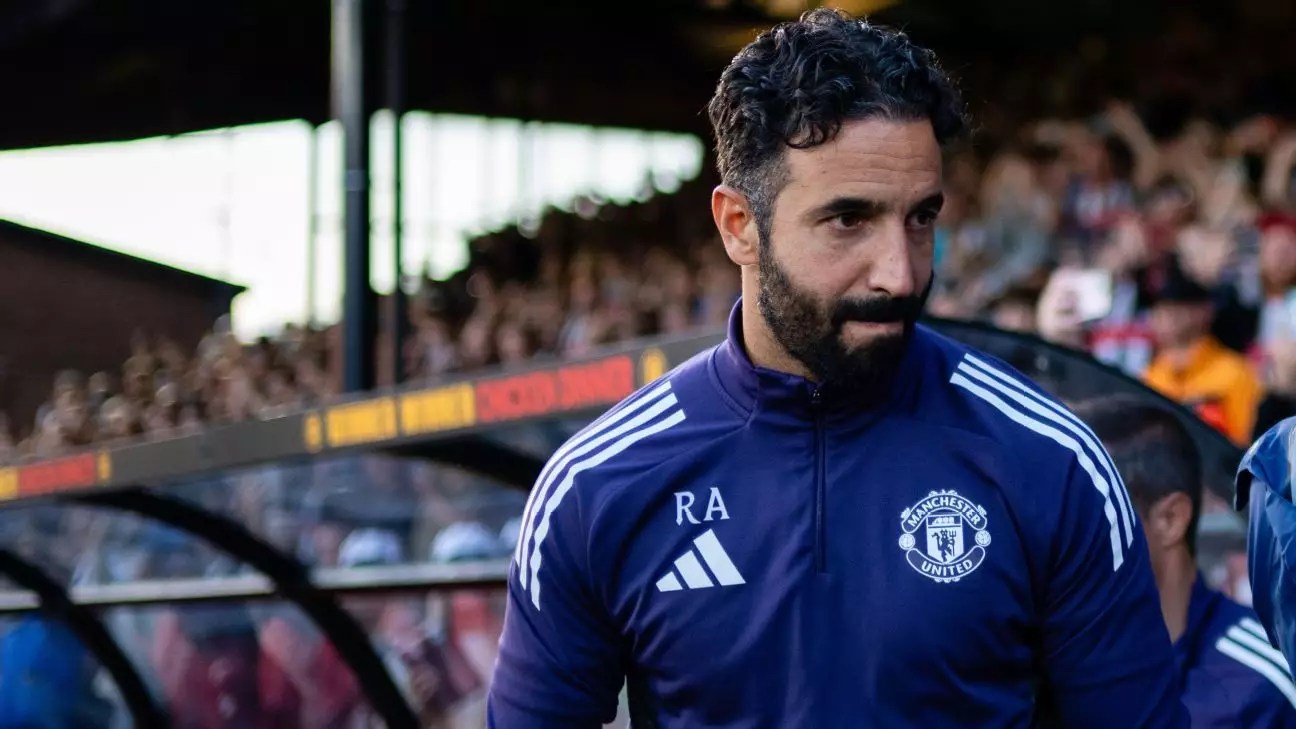The tenure of Ruben Amorim at Manchester United is currently perched precariously on the precipice of instability. Despite publicly asserting his desire to remain at the helm, the Portuguese coach has not offered any firm guarantees about his position past the upcoming international break. This ambiguous stance reveals a deeper internal struggle, fueled by recent setbacks and mounting pressure from fans, media, and club management. Amorim’s candid admissions—particularly his admission to contemplating quitting at times—highlight the emotional toll the role is taking on him. It is a reminder that high-pressure positions, no matter how prestigious, can often become personal battles of resilience.
The Impact of Recent Disappointments
Manchester United’s recent defeat to League Two side Grimsby Town in the Carabao Cup has exacerbated the crisis of confidence within the club. Such a lowly exit is not just a blow to morale but also a stark indicator of underlying issues. Amorim himself admitted to being “shocked” by the performance, reflecting a sense of disillusionment and perhaps disappointment with his squad’s mental strength. The Black Devils’ lackluster start to the season—only managing a single win in three matches—begs questions about the effectiveness of Amorim’s tactics and player motivation. The team appears haunted by their poor finish last season, in which they ended a dismal 15th in the Premier League, their lowest position in over five decades.
The Psychological Toll and Future Implications
Amidst the chaos, Amorim pointed to the psychological fatigue permeating the squad. His comments about players “thinking about the past” reflect a club still grappling with the scars of failure and disappointment. Such mental baggage hampers performance and stifles growth, especially when players struggle to focus on the present and future matches. The upcoming game against Burnley is more than just an opportunity for victory; it’s a litmus test for the team’s resilience and for Amorim’s leadership. A poor showing could further accelerate the destabilization, possibly prompting club officials to reconsider their long-term commitments.
Is Change Inevitable?
The broader implications of Amorim’s uncertain future extend beyond mere results. His own admission that he “doesn’t know what will happen” fuels speculation about whether Manchester United might finally decide to make a coaching change if performances do not improve. Although he maintains optimism about continuing, the lack of a definitive commitment portrays a sense of resignation or, at the very least, awareness that his position is fragile. This situation underscores the unpredictable nature of football management, particularly at elite clubs with lofty expectations, where one bad run often leads to managerial upheaval.
A Critical Crossroads for the Club
Ultimately, Manchester United finds itself at a critical juncture. The club cannot afford to let morale and confidence diminish further, especially when their ambitions remain high. Amorim’s future hinges on how well his squad responds to adversity and whether he can inspire a turnaround in performance and mentality. While he claims that “it is not going to change,” his words carry a nuanced tone that leaves open the possibility of significant upheaval if things deteriorate. The coming weeks will be decisive, not just for Amorim’s standing but for the club’s identity and trajectory as well.


Leave a Reply